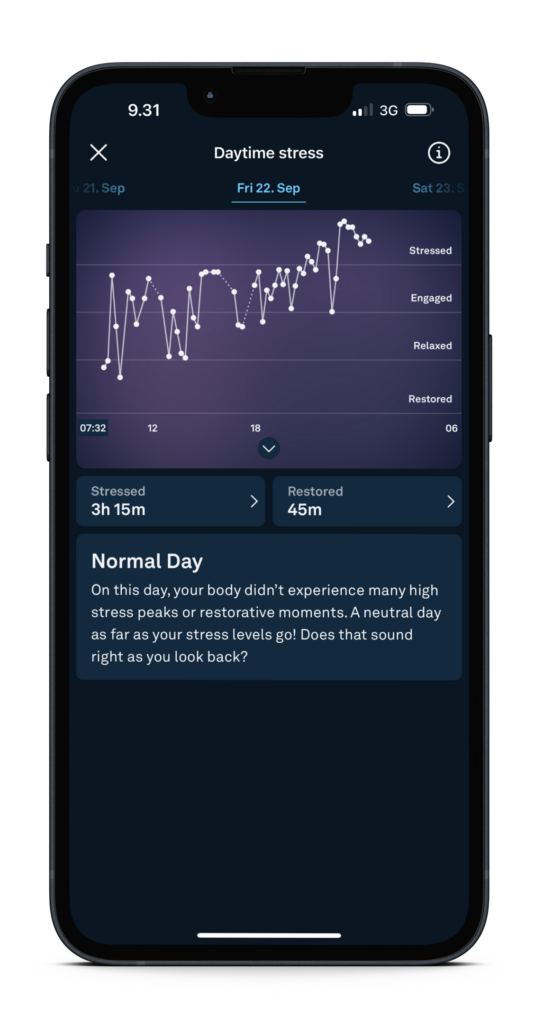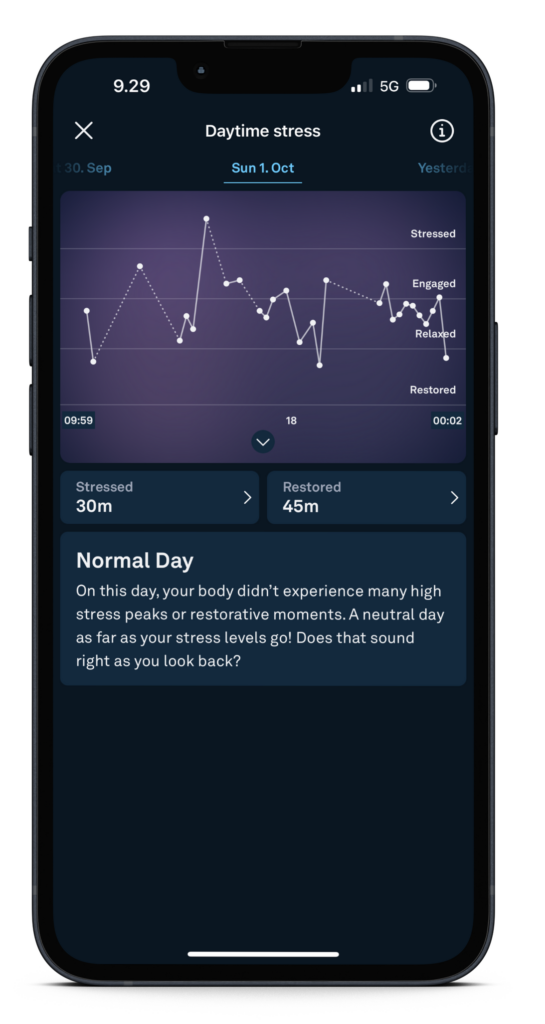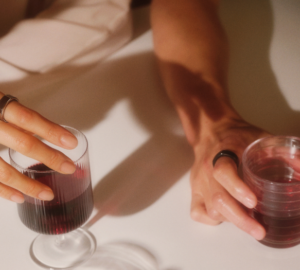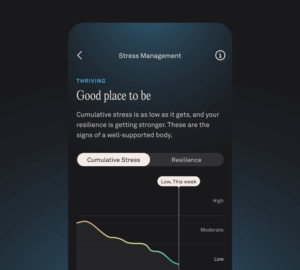Who: Udo S., 48, Director of Hardware Product at Oura, Finland
Surprising Oura insight: Using Oura’s Daytime Stress feature, Udo was able to learn how to regulate his body’s reaction to stressors. When he saw his body was in a “Stressed” state after a meeting, he would practice some deep breathing to calm down.
As director of hardware product for Oura, Udo is “responsible for all hardware that we build today and in the future.” One of his favorite parts of his job is being able to use — and benefit from — products he has worked on.
As part of an internal testing program, Udo used the new Daytime Stress feature to learn more about his stress. “I do experience stress; like anyone, my life goes up and down, but I consider myself to be a fairly relaxed person,” he says. “I have three children and a dog, so my life is definitely busy, but I am not easily agitated. I was interested to see how this would present in my Oura data, and if I was as relaxed as I thought!”
Below, Udo tells us the most surprising things he’s learned since using the Daytime Stress feature.
1. Different types of stress can be managed in different ways.
I’ve learned stress can be psychological or physical, or both. If I drink a glass of wine, I may feel super mellow, but I can see that it brings my body into a “Stressed” state. On the reverse, there are times when I think I’m stressed, like after a tough conversation, but Oura says my body is in a “Relaxed” state.

I’ve also learned that different types of stress may require different types of tools to regulate it. There’s a big difference between recovering from exercise stress (physical) and recovering from the stress caused by a debate with your partner (mental). Being able to identify the cause of my stress has made me more effective at regulating it.
2. Checking in with myself during the day has been a game changer.
I’ve been opening the app throughout the day to check my stress levels. This has changed the way I go through my day, ensuring that I’m self-regulating.
For instance, if I had a work meeting that was a bit rough, I’d check my stress. If there was a stress reaction, I’d make some adjustments to bring myself back to baseline. In this case, I’d know the stress was mental (not physical), so taking a few deep breaths and talking a bit less would help me calm down.
RELATED: This Breathwork Coach Uses Oura to Measure the Effectiveness of Her Practice
3. Being busy isn’t necessarily bad.
I recently had a packed day, doing exercise, construction work, yard work, dog walking, and more, and I assumed my stress must have been elevated. But I saw on Oura that I spent the whole day in a “Relaxed” state. I realized that being busy doesn’t automatically mean you are stressed! This gives me a sense of my own capabilities, and helps me find balance when I push myself so that I don’t overdo it.

4. I don’t have to eliminate all of my stressors, but I can learn to manage them.
For example, even though I can see that alcohol causes stress on my body, I am not going to abstain. I’m going to enjoy it without overdoing it, even though I know that my sleep might be worse.
RELATED: How Does Alcohol Impact Oura Members?
5. I have more detailed insights into my recovery.
Now, when my Readiness Score advises me to “take it easy,” I can see when I have high-stress peaks, and I can correlate them with specific stress triggers. This helps me bring my body back into balance more effectively. When I start to transition into a “Relaxed” or “Restored” state, I know my body has recovered, and I can start shifting gears.
6. It’s reassuring to see that most days are “normal.”
When I look at the Trends view, I can see that most days are normal for me. Once in a while I have a stressful day, and that makes it easy to isolate the root cause. It’s reassuring: I don’t need to worry thinking that my life is stressful, because I can see that I’m handling the peaks and troughs of stress well.
LEARN MORE: Why You Shouldn’t Stress About Getting the “Perfect” Night of Sleep











